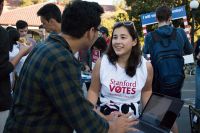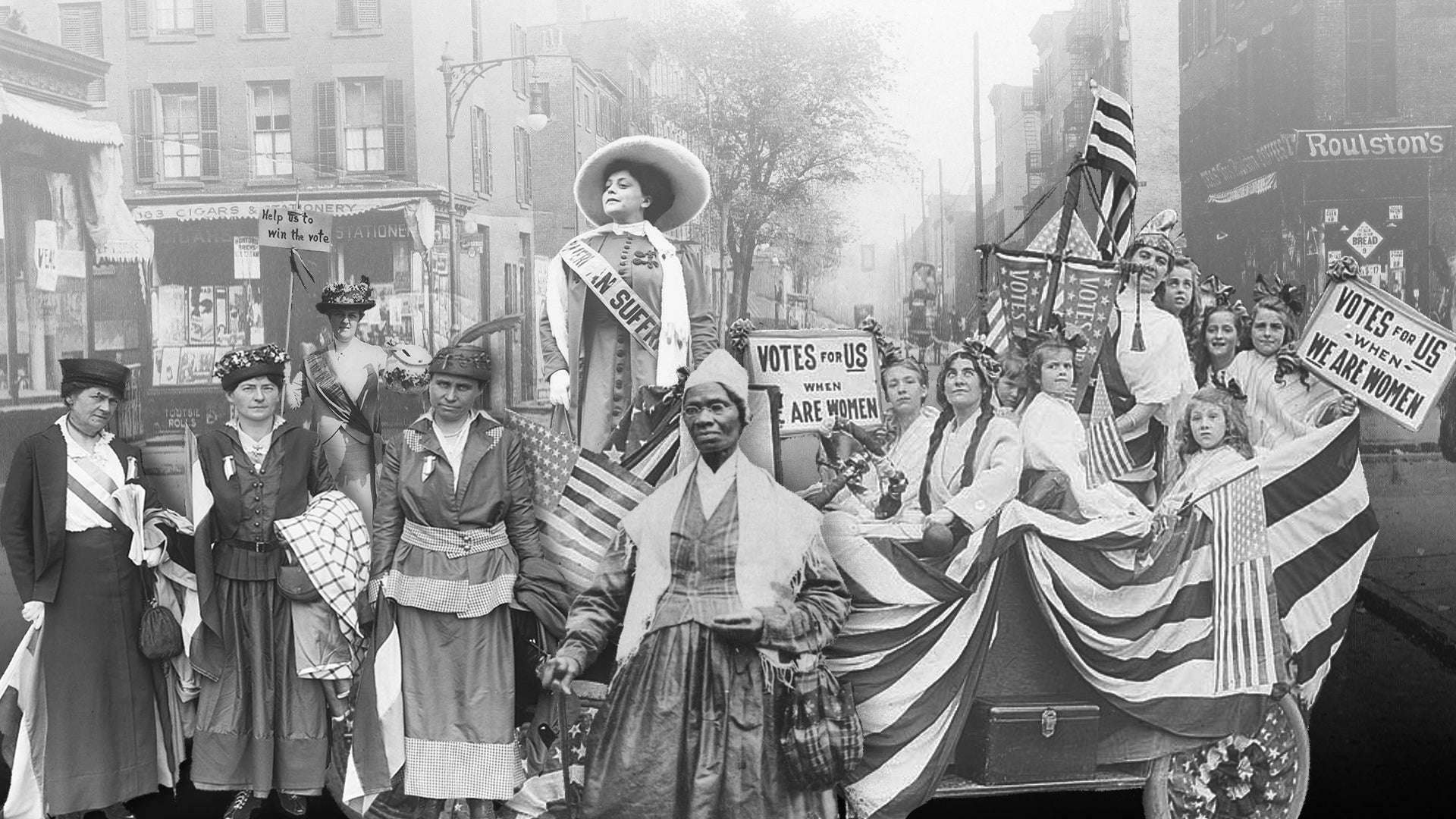It’s been 100 years since Congress passed the 19th Amendment, giving women the right to vote in the United States. The law was the culmination of decades of advocacy by suffragists who fought hard to expand equal voting rights.
Now, a century later, many Stanford students are building on those efforts – from organizing voting drives to leading the first Iowa caucus at Stanford to litigating gerrymandering. Here are some of the women Stanford students who are carrying on the legacy of the suffragists.

Antonia Hellman
Former co-director of StanfordVotes Antonia Hellman helped thousands of Stanford students register to vote ahead of 2018 midterm election. Read more.

Tyah-Amoy Roberts
Since surviving one of the country’s worst mass shootings, Tyah-Amoy Roberts has become a prominent and passionate advocate for safer communities. As a member of the board of directors of March For Our Lives, she has worked to increase voter registration in numerous states. Read more.

Ahmi Dhuna and Nova Meurice
To ensure their fellow Iowa expats in the Bay Area were able to vote in this year’s Democratic Primary, Ahmi Dhuna and Nova Meurice worked with the Iowa Democratic party to bring a caucus site to Stanford, one of just two in California. Read more.
Author
Alex Kekauoha
